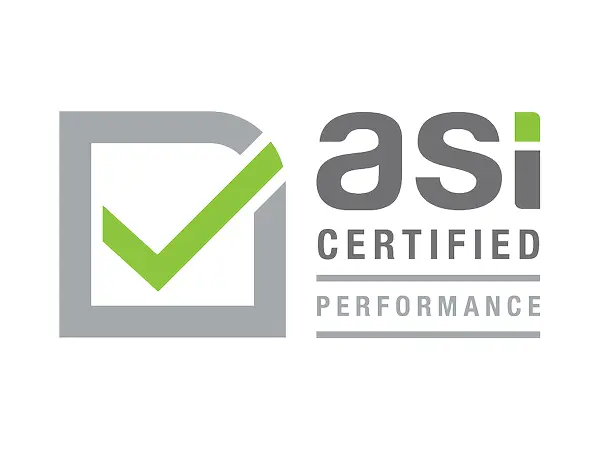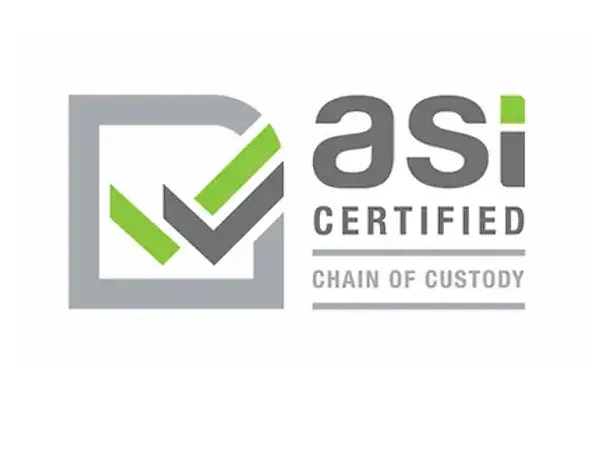Officially responsible
Schüco possesses a wide range of certifications – for products, processes, sites and buildings. You can download the certificates here.
Schüco possesses a wide range of certifications – for products, processes, sites and buildings. You can download the certificates here.

A total of 95 Schüco systems have already been certified according to the Cradle-to-Cradle standard. The certificates as well as a list of the certified systems can be downloaded below.
Download: Silver certificate (pdf, 318.8 KB)
Download: Bronze certificate (pdf, 279.5 KB)
Cradle to Cradle Certified® is a registered trade mark of the Cradle to Cradle Products Innovation Institute.

VinylPlus® is the sustainability programme of the European PVC sector. The initiative worked together with the Building Research Establishment (BRE Global) and The Natural Step (TNS) to develop the VinylPlus® Product Label, which is awarded to PVC solutions that are particularly sustainable. PVC-U systems from Schüco are included among these.
The certification covers eight core criteria, including a sustainable energy and climate strategy, monitored material cycles and recycling, the procurement of PVC raw materials from sustainable sources and requirements for procurement management and the organisation.

The Aluminium Stewardship Initiative (ASI) develops industrial standards for the responsible use of aluminium, which are also certifiable. Schüco is a founding member of the ASI and is certified in accordance with both the ASI Performance Standard and the ASI Chain of Custody Standard.
The Performance Standard focuses on responsible governance. Different priorities are set depending on the stage of the value chain. As a commercial enterprise with its own product development, Schüco must also prove that the aluminium systems sold are designed to be long-lasting, easy to repair and recyclable.

The Chain of Custody Standard ensures that aluminium products are manufactured, processed and traded taking into account specific sustainability criteria. To do this, it creates a link between the approach to sustainability within the company and collaboration with sustainable business partners along the value chain. The CoC Standard authorises Schüco to sell ASI certified aluminium. In specifications, it serves as proof of the consideration of sustainability criteria.
Download:

Schüco One, the company headquarters of Schüco in Bielefeld completed in 2022, was the first office building in the world to be awarded by three international certification systems for sustainable building.
The German Sustainable Building Council (DGNB) rated the building in the top two award categories: Platinum for sustainability and Diamond for building culture and design quality.
The newbuild also received a Platinum award from the LEED certification label (Leadership in Energy and Environmental Design). Implementation of sustainability criteria in the categories Location and Transportation, Resource Efficiency, Energy and Atmosphere, Indoor Environmental Quality, Innovation and Materials was assessed.
The new company headquarters also received the BREEAM certificate with a rating of 80.48%, placing it in the second-highest bracket of “Excellent”. This certification takes into account different ecological and socio-cultural criteria, such as energy and water consumption, construction method and materials, health and comfort of the users, and the building's ecological impact on the environment.
Schüco operates an active quality, environment, energy and health and safety management system at its sites. We thereby ensure the highest standards in all departments and processes.
The DQS certificate (pdf, 196.9 KB) demonstrates that Schüco has met the requirements of ISO 9001 for a quality management system. This means we are not only able to monitor our internal business processes, but can also provide our customers and suppliers with targeted support so that they are able to uphold high quality standards themselves.
The environment management system of Schüco International KG at the Bielefeld site was first certified in accordance with the international environment management system standard ISO 14001 in 2013 and has been reassessed every year since. With theDQS certificate (pdf, 199.1 KB), we are able to demonstrate that we already take into account and implement all the relevant environmental requirements during the development stage of our products.